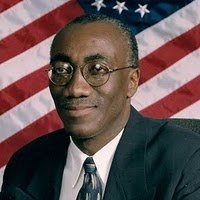By BILL KACZOR, Associated Press
TALLAHASSEE, Fla. -- A Florida man's bid to become the first undocumented immigrant to obtain a law license in the United States met skepticism Tuesday from most of the state's Supreme Court justices.
Jose Godinez-Samperio came to the U.S. with his parents on visitors' visas when he was 9 years old, but the family never returned to Mexico. He graduated from New College in Florida, earned a law degree from Florida State University and passed the state bar exam last year.
"He's somebody who has done everything he's supposed to do. He complied with every rule," Godinez-Samperio's attorney and former American Bar Association president Talbot "Sandy" D'Alemberte, said after the hearing.
Godinez-Samperio's case is one of a few across the country. Undocumented immigrants in New York and California also want to practice law there.
The Board of Bar Examiners in Florida found no reason to deny the 25-year-old Godinez-Samperio a license but asked the state's high court for guidance, said the board's lawyer, Robert Blythe.
"It's not really about this applicant," Blythe said. "It's a broader question."
Justice Barbara Pariente compared Godinez-Samperio's status to someone who doesn't pay federal income tax.
"The board would never recommend that person for admission to the practice of law," Pariente said.
Later, though, she suggested the court could temporarily license Godinez-Samperio. The seven justices questioned lawyers about the possibility of a limited license that would let Godinez-Samperio do free legal work and discussed delaying their decision to see if he obtains a work permit under a policy President Barack Obama announced in June.
"Somebody's trying to make it a – literally – a federal case, but we're talking about one person right now out of thousands every year," Pariente said.
Obama issued a directive to protect immigrants who are 30 or younger and entered the country illegally as children. It exempts them from deportation and offers temporary work permits and Social Security cards for those who apply. It does not provide a path to citizenship.
Pariente said Obama's policy "may or may not continue" if the Democratic president is defeated in November. Republican challenger Mitt Romney said Tuesday he would honor the temporary work permits under Obama's policy while promising comprehensive immigration reform before the two-year visas expire.
Godinez-Samperio said the election may decide his future.
"The voters need to take into account that the president they elect is going to make a lot of these policy changes," he said. "And Mitt Romney has been a failure at being clear on his immigration position."
The Florida justices are appointed by the governor and up for retention votes every six years. Three are on the ballot this year and are opposed by the GOP, a break from a typically nonpartisan election.
Justice Charles Canady also expressed reservations, citing a federal law that prohibits state agencies from licensing undocumented immigrants. He noted the case in California, where the U.S. Justice Department filed brief with the Supreme Court there opposing bar admission for Sergio Garcia.
Garcia also came illegally to the U.S from Mexico when he was a child, but he would not qualify for a work permit under Obama's new policy because he is 35 years old.
D'Alemberte, who also is a former Florida State University president and taught his client when he was a law student, said the federal law doesn't apply because the Florida Supreme Court is not an "agency." He also argued the states have a constitutional right to decide who practices law in their courts.
At least one Florida justice, Cuban immigrant and naturalized citizen Jorge Labarga, seemed to support Godinez-Samperio.
"If he's afforded a Social Security card that means he can work," Labarga said. "Then what's the issue?"
In New York, Ceasar Vargas has passed the bar exam but is waiting to see what happens in Florida and California before applying for a license. Vargas, whose parents illegally brought him to the U.S. from Mexico when he was 5, graduated from the City University of New York law school.

